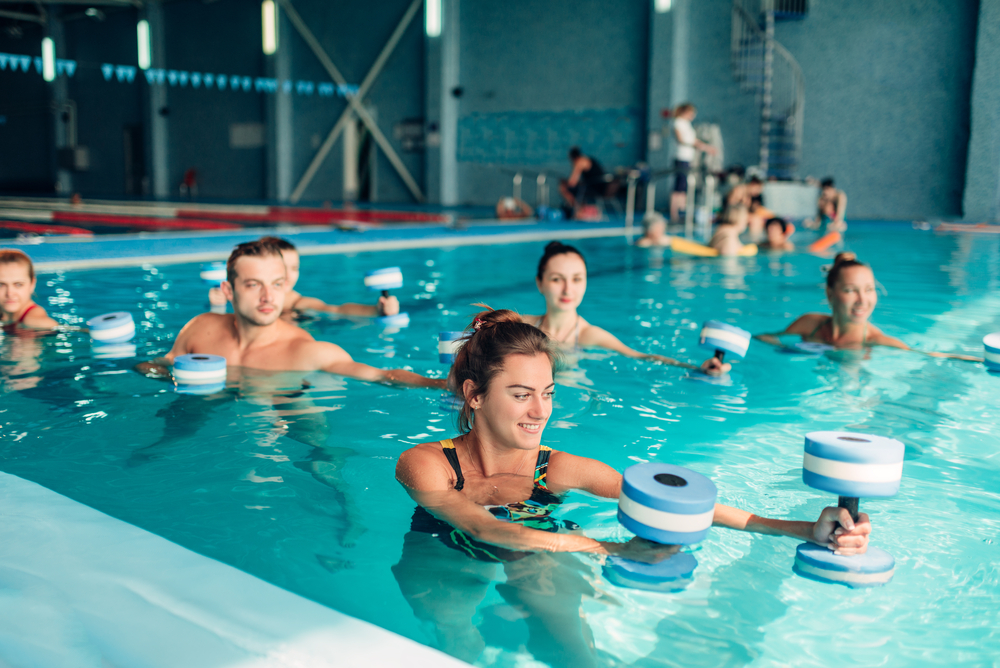By: Catherine Cooley, CHWC
Luckily, it is possible to look and feel many years younger than our chronological age by making certain lifestyle choices. As we go through life, our habits not only affect our physical health but can also play a vital role in building better cognition and lessening the chances of mental decline.
We normally associate brain development with babies and young children. However, research has shown that the adult brain is not stagnant; it is constantly at work, producing new cells and forming neural connections through a process called neuroplasticity. This is good news because it means that you have the ability to influence this process. In essence, whenever you challenge yourself to learn something new or try a new activity you are harnessing your brain’s ability to rewire itself in response to the stimulation we give it.
Discover five simple, yet powerful, ways to enhance cognitive function, keep your memory sharp and improve mental clarity at any age.
1. Adopt a growth mindset
A growth mindset is the belief that you can improve your abilities and create successes through continuous learning, practice and persistence. Openness to new experiences through traveling, learning a new skill or taking on something that is unfamiliar and mentally challenging has been shown to improve cognitive function, according to a 2013 study published in Psychological Science.
To develop a growth mindset, it’s important to get out of our comfort zone and try something new.
Put into practice:
- At work, volunteer for a project that involves a skill you don’t usually use
- Take on a new hobby — such as photography, painting or learning to play a musical instrument
2. Stay physically active
Numerous studies have shown the impact of exercise on improving cognitive function and memory — including our ability to learn, handle stressors, improve decision making ability and recall facts and memories. One reason for this is that aerobic exercise increases blood flow to the hippocampus, the area of our brain that is responsible for memory. A 2006 study found that cardiovascular fitness, especially in older adults, is associated with increased brain volume in the areas of the brain linked to age-related decline.
Put into practice:
- Begin keeping track of your daily steps using a pedometer, fitness tracker or app
- Start taking a daily walk, even if it’s just around the block
- Join a group class — such as yoga, Zumba or water aerobics

3. Manage emotional well-being
Our emotional well-being has been shown to influence our health in many ways, including the health of our brain. Stress, anxiety and depression, when prolonged, have all been shown to take a toll on cognitive functioning, leading to impaired memory and cognitive decline. Neuroscientists have discovered that high levels of the ‘stress hormone’ cortisol damages the brain, leading to long-term changes in structure and function. Over time, this can lead to mental problems such as anxiety, mood disorders and difficulties learning.
To help minimize the negative implications of prolonged stress, the key is to identify the root cause and situations where stress is likely to occur, and then develop effective strategies to help cope.
Put into practice:
- Learn effective ways to relieve stress such as physical activity, breathing techniques and proper sleep. Choose one to practice this week and note how you feel
- Take advantage of health insurance benefits and/or Employee Assistance Programs (EAPs) which may offer tools and connect you to helpful resources
- Some insurance plans, such as Priority Health, offer online stress management tools, which use cognitive behavioral therapy to help you de-stress and learn strategies to combat negative thoughts
4. Eat for brain health
Foods rich in nutrients such as omega-3 fatty acids, antioxidants and B vitamins have all been shown to support brain health. Foods particularly rich in these healthful compounds include:
- Leafy green vegetables
- Fatty fish
- Berries
- Tea and coffee

As an added bonus, research has shown that these same foods, which are linked to better brainpower, have also been shown to protect our hearts. Adding these foods into your diet on a regular basis may improve the health of your brain, leading to enhanced mental function and overall health.
Put into practice:
- Emphasize plant foods in your diet. Research shows that eating more plant foods may help slow cognitive decline
- Incorporate fish in your diet twice a week. Remember to choose varieties that are low in mercury, such as salmon and canned light tuna
- Try a handful of walnuts as a snack or on a salad. A recent study from UCLA linked higher walnut consumption to improved cognitive test stores
5. Restorative sleep
Few things feel better than waking up after a good night’s sleep. Quality sleep puts us in a better mood and gives us energy to keep up with our busy lives. It also helps sharpen our brain. When you sleep, your body has the ability to flush out toxins that build up during waking hours, helping to clear the brain. Sleeping is important for storing memories, while also restoring us both mentally and physically. Lack of sleep can contribute to difficulties problem-solving, reasoning and concentrating.

Put into practice:
- Avoid use of light-emitting screens before bedtime. That means cell phones, tablets, laptops, etc.
- Switch to decaf after 2 o’clock
- Listen to your body. Discover your natural sleep cycle. Are you a morning person or a night owl? Knowledge of this will help you unlock the secrets to your best sleep routine
Whether your goal is to gain a competitive edge at work, become a better student or stay mentally sharp as you age, it’s never too late to start taking steps to improve our health.
Take advantage of your brain’s ability to change and grow by starting a healthy habit to keep your brain fit.
About the Author: Catherine Cooley, CHWC, is a Health Coach in the Wellness Department at Priority Health. She is passionate about supporting Priority Health members improve their health through embracing behaviors that result in positive lifestyle change. Catherine is a lifestyle coach through the National Kidney Foundation’s Diabetes Prevention Program and has a background in weight management and corporate wellness programming.


